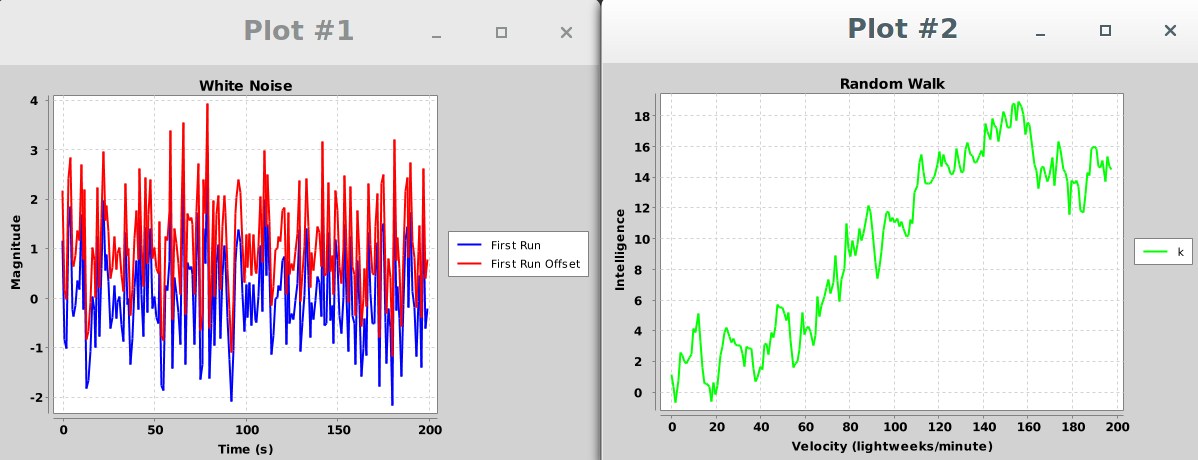Overview
Koma is a scientific computing library written in Kotlin, designed to allow development of multiplatform numerical applications targeting JavaScript, Java (JVM), and/or embedded (native) platforms.
Project goals:
- Create a scientific programming environment that is similar in style to NumPy or MATLAB
- Enable writing numerical applications which can be deployed on JVM, JS, and native platforms
- Avoid reinventing the wheel by delegating to platform specific back-ends when available
To get started, try the quickstart instructions below for your desired platform. After that, take a look at the linear algebra or N-D arrays sections to see some usage examples.
Quickstart (Using from Kotlin/JVM or Kotlin/JS)
Koma is hosted on bintray. First add the koma repository to your repo list. If using gradle:
repositories { maven { url "https://dl.bintray.com/kyonifer/maven" jcenter() } }
Now add a dependency on the koma-core and plotting artifact:
dependencies{ compile group: "com.kyonifer", name:"koma-core-ejml", version: "0.12" compile group: "com.kyonifer", name:"koma-plotting", version: "0.12" }
dependencies{ compile group: "com.kyonifer", name:"koma-core-js", version: "0.12" }
And we're ready to go. Do a quick test:
import koma.* import koma.extensions.* fun main(args: Array<String>) { // Create some normal random noise var a = randn(100,2) var b = cumsum(a) figure(1) // Second parameter is color plot(a, 'b', "First Run") plot(a+1, 'y', "First Run Offset") xlabel("Time (s)") ylabel("Magnitude") title("White Noise") figure(2) plot(b, 'g') // green xlabel("Velocity (lightweeks/minute)") ylabel("Intelligence") title("Random Walk") }
import koma.* import koma.extensions.* fun main(args: Array<String>) { // Create some normal random noise var a = randn(100,2) var b = cumsum(a) // On js, koma doesn't have built-in plotting, so we'll just print the value println(b[99,0]) }
On the JVM you should see:

Quickstart (Raw JS)
You can also use Koma directly from JavaScript. Begin by building Koma from source.
After doing so, you should see CommonJs modules for Koma in the ./node_modules/ folder.
You can then use these modules from an installation of Node.js. For example, to run
the toy example main function defined at examples/js/example.js
you would run the following in the Koma root folder:
node examples/js/example.js
Quickstart (Native)
You can use Koma in a native executable without either a JS or JVM runtime available.
Begin by building Koma from source.
This will produce an executable called build/native/komaExample.kexe which
includes the Koma library as well as the toy example main function
defined at examples/native/main.kt.
You can run the executable directly, without any js or java runtime dependency:
./build/konan/bin/linux/komaExample.kexe
You can edit the binary by making modifications to examples/native/main.kt in the source tree.
See the build from source section above for instructions on building shared or static libraries
which can be used from an application.